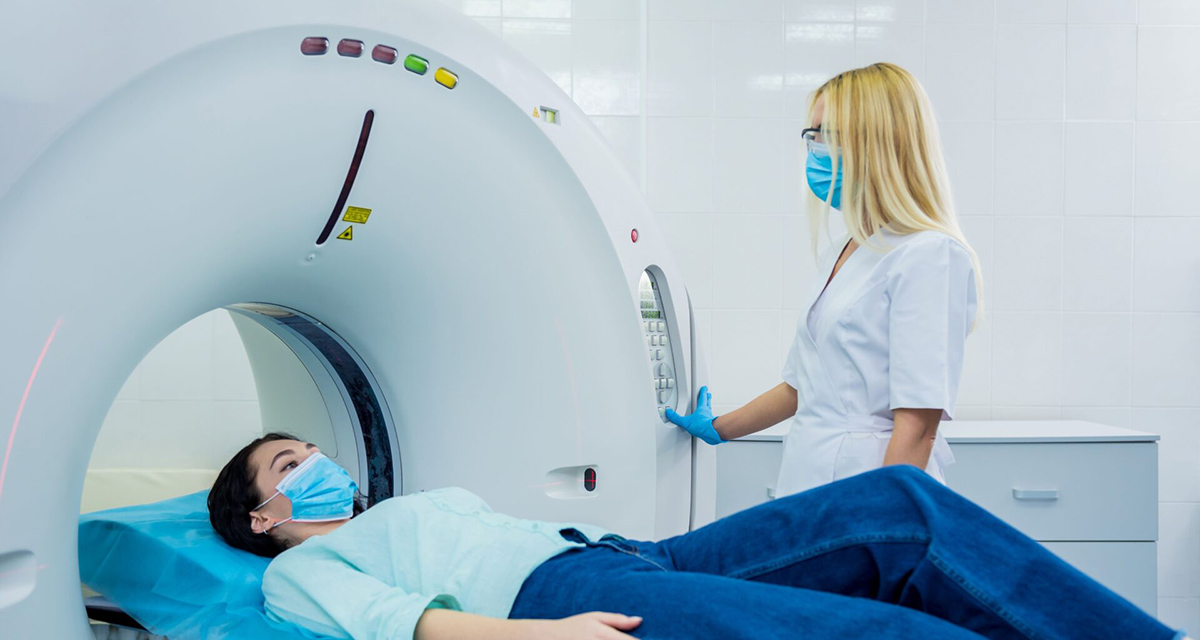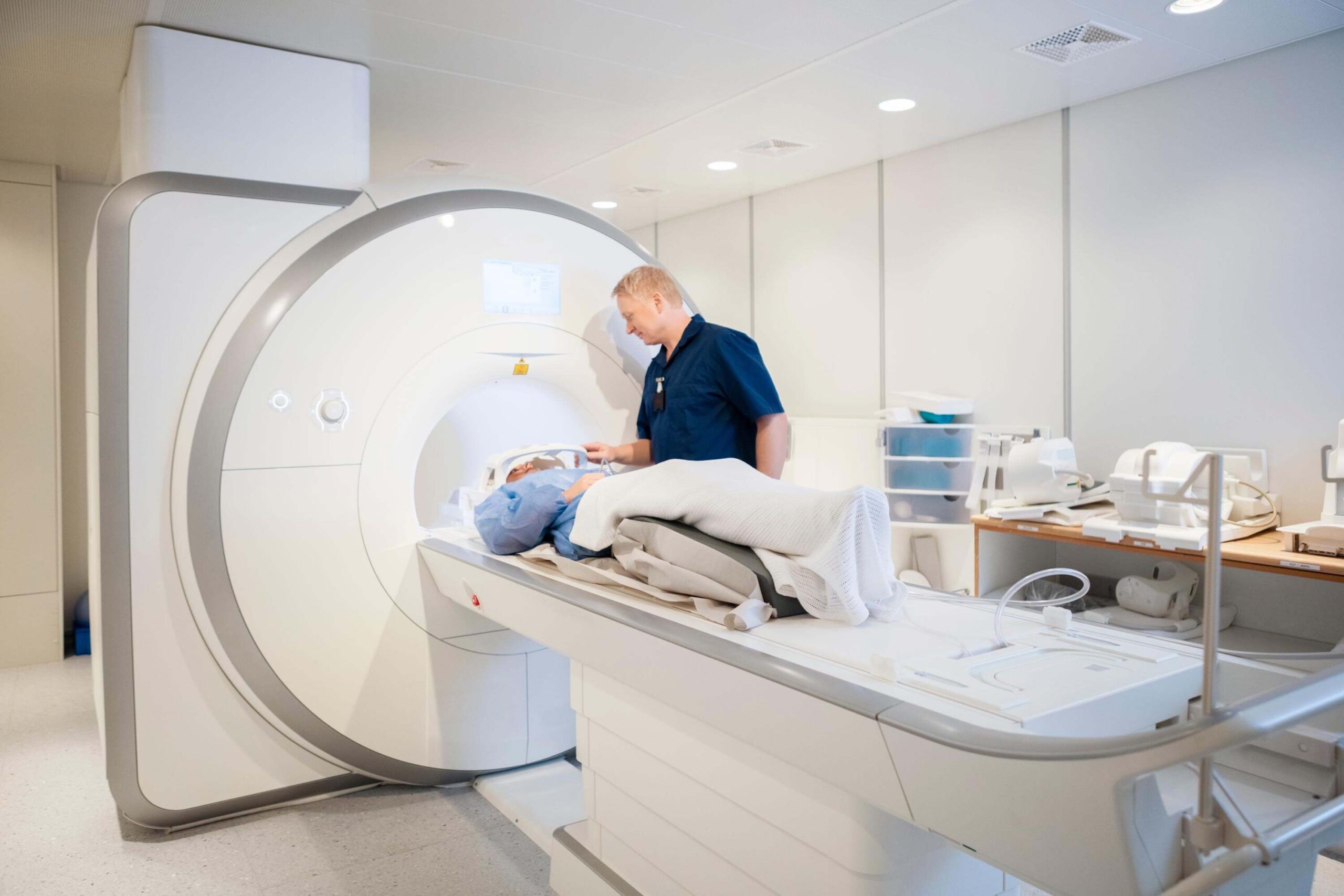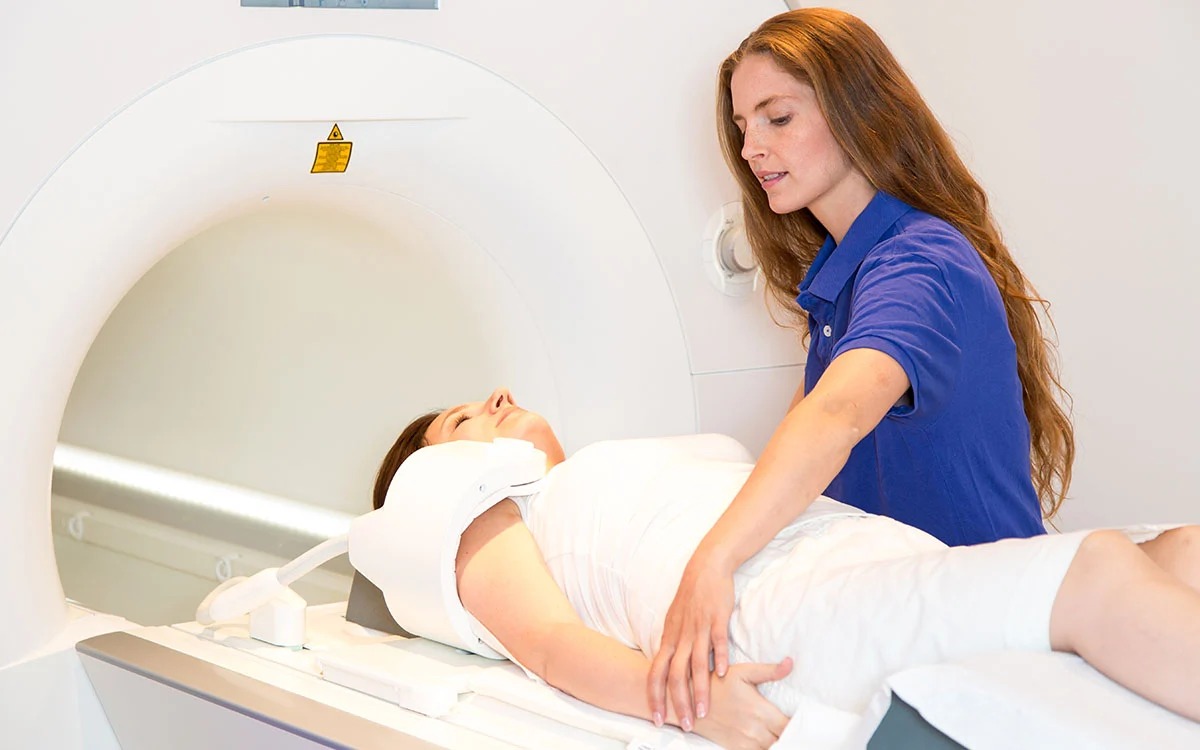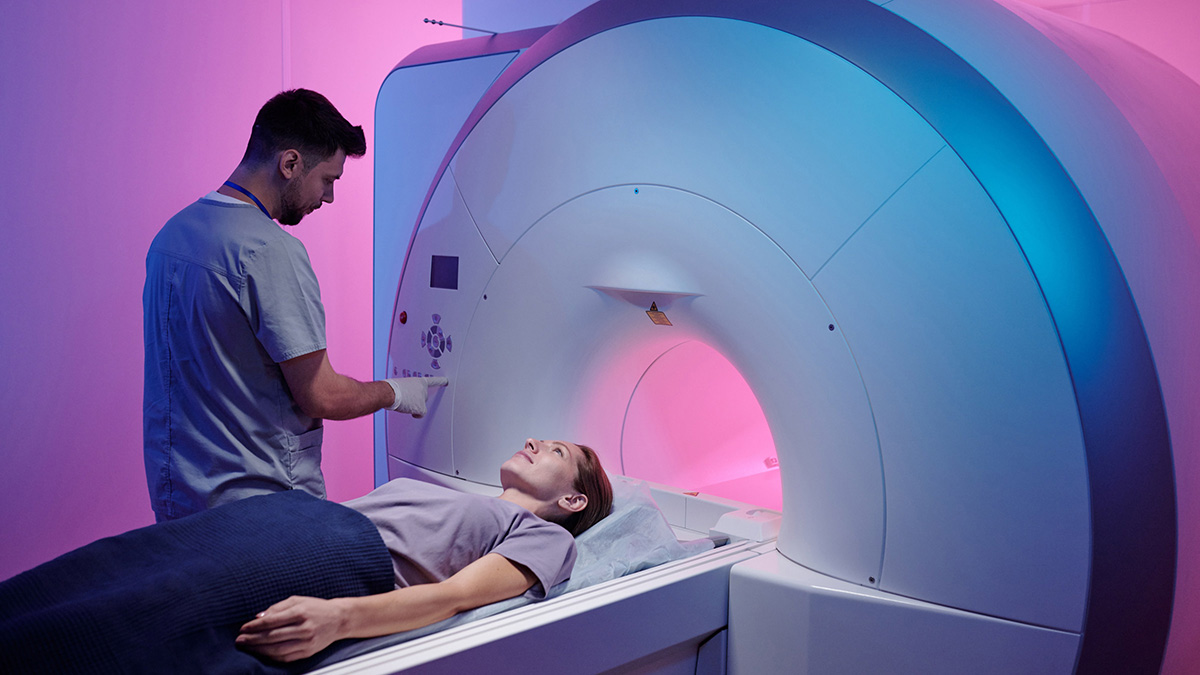

Finance
How Much Are MRI Scans Without Insurance?
Published: November 15, 2023
Find out the cost of MRI scans without insurance and manage your finances wisely. Don't let the lack of coverage hinder your medical needs.
(Many of the links in this article redirect to a specific reviewed product. Your purchase of these products through affiliate links helps to generate commission for LiveWell, at no extra cost. Learn more)
Table of Contents
Introduction
Welcome to the world of medical imaging, where advanced technology allows doctors to diagnose and monitor various health conditions with remarkable precision. Magnetic Resonance Imaging, commonly known as MRI, is one of the most versatile and powerful imaging techniques available today. It provides detailed and accurate images of the body’s internal structures, aiding in the diagnosis and treatment planning for a wide range of medical conditions.
However, the cost of medical procedures, including MRI scans, can be a significant concern, especially for individuals without insurance coverage. Without the backing of an insurance plan, the out-of-pocket expenses associated with MRI scans can add up quickly and become a financial burden for many.
In this article, we will explore the cost of MRI scans when insurance coverage is not available. We will delve into the factors that influence the pricing of these scans and discuss affordable options that can help alleviate the financial strain. Whether you’re considering an MRI for diagnostic purposes or are simply curious about the costs involved, this article aims to provide you with a comprehensive understanding of what to expect.
Let’s begin by taking a closer look at the technology behind MRI scans and how they work.
Understanding MRI Scans
MRI scans are a non-invasive medical imaging technique that uses a strong magnetic field and radio waves to generate detailed images of the body’s internal structures. Unlike other imaging techniques such as X-rays or CT scans, MRI does not use ionizing radiation, making it safer for repeated use.
The MRI machine consists of a large tube-like structure that contains a powerful magnet. The patient lies on a table that slides into the tube, and the magnet produces a magnetic field that aligns the hydrogen atoms in the body. Radio waves are then directed at these atoms, causing them to emit signals. These signals are picked up by a receiver and processed by a computer to create cross-sectional images of the body. The images provide detailed information about the soft tissues, organs, and bones, allowing doctors to examine and diagnose various medical conditions.
One of the key advantages of MRI scans is their ability to produce images from different angles and perspectives. With the help of contrast agents, which are sometimes injected into the body, MRI can also highlight specific structures or abnormalities, further enhancing the diagnostic capabilities.
MRI scans are commonly used to diagnose and monitor conditions such as brain and spinal cord disorders, joint and musculoskeletal problems, tumors, infections, and cardiovascular diseases. They play a crucial role in the medical field, helping doctors make accurate diagnoses, plan surgeries, monitor treatment progress, and provide personalized care.
Now that we have a basic understanding of how MRI scans work, let’s explore the factors that influence the cost of these scans for individuals without insurance coverage.
Factors Affecting the Cost of MRI Scans without Insurance
The cost of an MRI scan can vary significantly depending on several factors. When it comes to individuals without insurance coverage, it becomes even more crucial to understand these factors as they directly impact the out-of-pocket expenses. Here are some key factors that influence the cost of MRI scans:
- Location: The geographical location where you get your MRI scan can greatly impact the cost. Prices tend to be higher in metropolitan areas where the cost of living is generally higher.
- Facility Type: The type of facility you choose for your MRI scan can also affect the cost. Private imaging centers usually have higher prices compared to hospitals or clinics. However, private centers may offer more flexibility in terms of scheduling and shorter wait times.
- Type of MRI: The specific type of MRI scan you require can influence the cost. Different types of MRI scans are tailored for different areas of the body and may require additional specialized equipment or techniques, leading to higher costs.
- Additional Services and Contrast Agents: If your MRI scan requires the use of contrast agents to enhance the visibility of certain structures or abnormalities, this may add to the overall cost. Additionally, additional services such as radiologist interpretation fees or CD copies of the scan may also contribute to the final bill.
- Insurance Negotiated Rates: Although we are discussing the cost of MRI scans without insurance coverage, it is worth noting that some facilities may offer negotiated rates for uninsured individuals. It’s always worth inquiring about any discounted rates or payment plans that may be available.
It’s important to keep in mind that these factors can vary from one facility to another, and it’s recommended to contact multiple providers to get accurate pricing information for your specific situation. Being aware of these factors can help individuals without insurance coverage navigate their options and make informed decisions about their healthcare expenses.
Now that we have explored the factors influencing the cost of MRI scans, let’s delve into the pricing range for individuals without insurance coverage.
Pricing Range for MRI Scans without Insurance
The cost of an MRI scan without insurance coverage can vary significantly depending on the factors mentioned earlier. While it’s challenging to provide an exact figure, we can provide a general pricing range to give you an idea of what to expect.
In the United States, the average cost of an MRI scan without insurance can range from $400 to $3,500 per scan. This wide range is due to multiple factors, including the location, facility type, and the specific type of MRI required.
Basic MRI scans, such as those for the head, spine, or extremities, tend to be on the lower end of the pricing spectrum, ranging from $400 to $1,200. More complex or specialized MRI scans, such as those for the heart, abdomen, or pelvic region, can carry higher price tags, ranging from $1,500 to $3,500 or more.
It’s important to note that these prices are approximate and can vary significantly depending on the factors mentioned earlier. Additionally, prices may also vary between different regions and healthcare providers. It’s always advisable to contact multiple facilities and inquire about their pricing to get an accurate estimate for your specific situation.
If you find the cost of an MRI scan without insurance to be overwhelming, don’t lose hope. There are affordable options available that can help alleviate the financial burden.
Let’s explore some of these options in the next section.
Affordable Options for MRI Scans without Insurance
For individuals without insurance coverage, the cost of an MRI scan can be a significant financial burden. However, there are several avenues to explore in order to make MRI scans more affordable. Here are some options to consider:
- Research and Compare Prices: Take the time to research and compare prices among different imaging centers and hospitals in your area. Prices can vary significantly, so it’s important to gather information from multiple sources to find the most affordable option.
- Outpatient Imaging Centers: Consider visiting outpatient imaging centers instead of larger hospitals. These centers often have lower overhead costs and can offer more competitive pricing for uninsured individuals.
- Payment Plans and Financing Options: Many healthcare providers and imaging centers offer payment plans or financing options to help patients manage their expenses. Inquire about such options to make the cost of the MRI scan more manageable.
- Government Programs and Non-Profit Organizations: Explore government programs or non-profit organizations in your area that may provide financial assistance for medical procedures. These programs are often designed to help low-income individuals or those without insurance coverage.
- Consider Hospital Assistance Programs: Some hospitals have assistance programs or charity care programs that can help individuals without insurance receive medical services at reduced rates. Check with local hospitals to see if they offer such programs.
- Research Clinical Trials: Clinical trials often require MRI scans as part of the research process. Participating in a clinical trial can provide access to free or low-cost MRI scans. However, it’s important to do thorough research and consult with healthcare professionals before considering this option.
- Look for Imaging Centers with Promotions or Discounts: Keep an eye out for special promotions or discounts offered by imaging centers. They may have specific days or times when they offer reduced prices or discounts for individuals without insurance.
By exploring these affordable options, you can significantly reduce the financial burden of an MRI scan without insurance. Remember to communicate openly with healthcare providers about your financial situation and inquire about any available discounts or assistance programs.
Before we conclude, let’s summarize the main points discussed in this article.
Conclusion
MRI scans are valuable tools in modern medicine, providing detailed images that aid in the diagnosis and treatment of various health conditions. However, the cost of these scans can be a concern for individuals without insurance coverage.
In this article, we discussed the factors that influence the cost of MRI scans without insurance, including location, facility type, and the specific type of MRI required. We explored the general pricing range for these scans, which can range from $400 to $3,500 or more.
While the cost of MRI scans without insurance may seem daunting, there are affordable options available. Researching and comparing prices, utilizing outpatient imaging centers, exploring payment plans and financing options, and looking into government programs or non-profit organizations can help make MRI scans more manageable.
It’s important to remember that healthcare providers and imaging centers may offer assistance programs or discounts for uninsured individuals. Communication is key – don’t hesitate to inquire about any available resources that can help reduce the financial burden.
Ultimately, the decision to undergo an MRI scan without insurance coverage is a personal one. It’s important to weigh the potential benefits of the scan against the cost and consider alternative options if necessary.
Medical imaging technology continues to advance, and access to affordable healthcare is a growing concern. By staying informed about the options available and advocating for your financial wellbeing, you can make informed decisions about your healthcare expenses.
Remember, your health is important, and there are avenues to explore for affordable access to the medical care you need.














